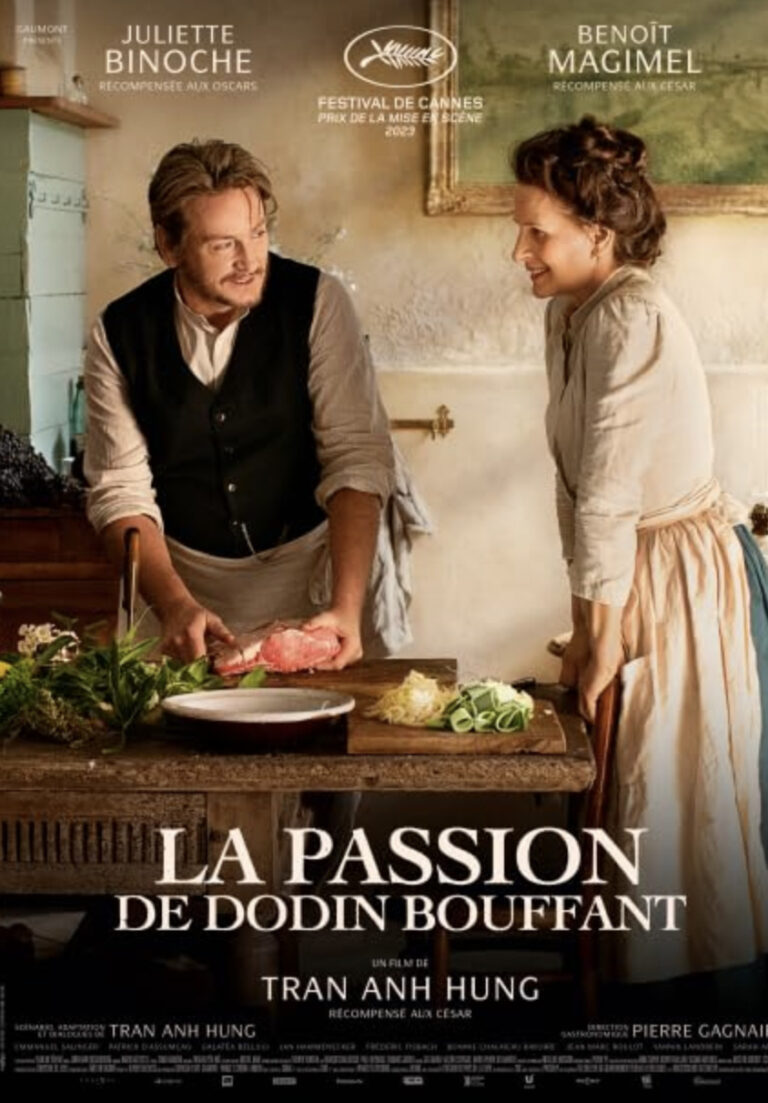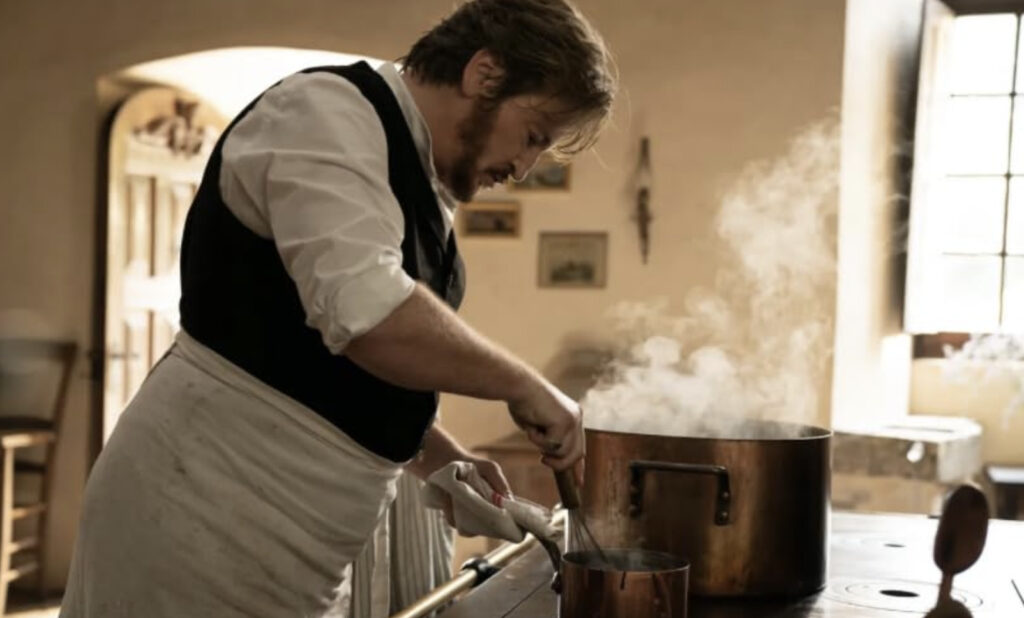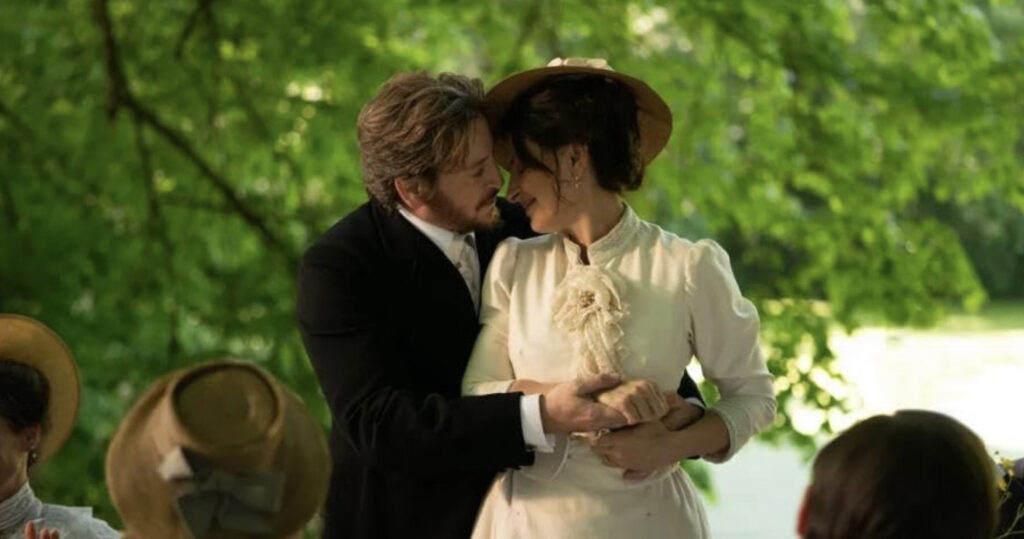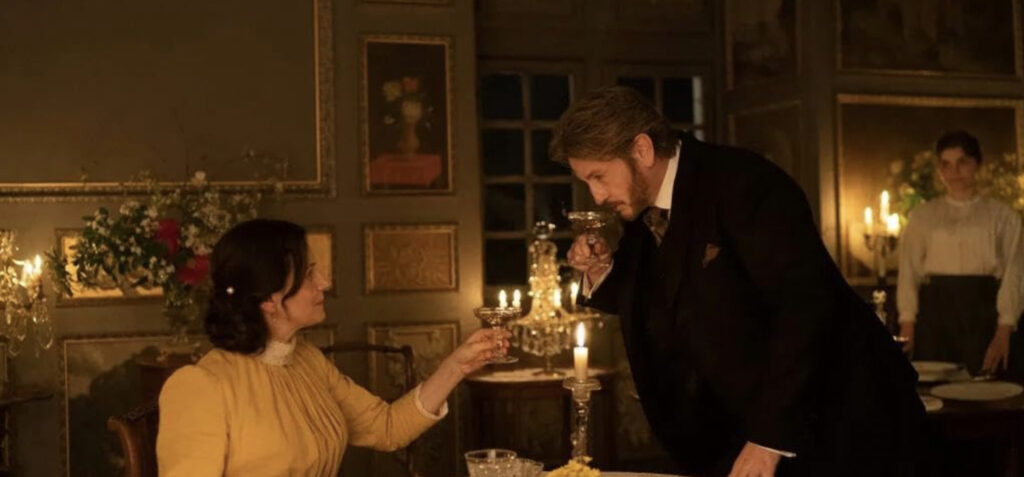
Period films often thrive on the political and social conflicts that have plagued countries around the world throughout history. But the new French art house food-driven romantic drama, The Taste of Things, daringly leaves behind external narrative tension. It instead focuses on more intimate, relatable struggles that are still seen in modern personal relationships through a captivating visual lens.
The project, which is presented in French with English subtitles, had its World Premiere at the 76th Cannes Film Festival in May under the title The Pot-au-Feu. During the French-based film festival, the feature won the best director prize for French-Vietnamese filmmaker, Trân Anh Hùng. He also wrote the movie’s script, which he based upon Marcel Rouff’s 1924 novel La passion de Dodin-Bouffant, Gourmet.
After its World Premiere at Cannes, The Taste of Things is set to have its U.S. premiere this Thursday, October 5 at 5:30pm ET. The project will screen at Manhattan’s Alice Tully Hall during the New York Film Festival. Hùng will be in attendance at the screening to participate in a post-screening Q&A.

IFC Films and Sapan Studios have acquired the feature’s American distribution rights. The distributors have not yet announced the project’s release date in the U.S.
Set in 1885, The Taste of Things follows the culinary and romantic relationships between top chef Dodin Bouffant (Benoit Magimel) and his personal cook and lover, Eugénie (Academy Award-winner Juliette Binoche, who has been married to Magimel in real life for decades). They have been together for decades and he wishes to marry her but she has continuously refused, as she’s afraid accepting his proposal will deprive her of her independence.
The drama’s simple narrative sets the table for a sublime, sense-heightening exploration of the pleasure of food, which was created under the guidance of culinary advisor Michel Nave. The feature is destined to be remembered as one of the greatest movies about the meaning, texture and experience of food.
Under the exceptionally well-crafted cooking techniques Nave helped the cast, particularly Magimel and Binoche, achieve in the couple’s beautifully set kitchen, the performers infuse Dodin and Eugénie with an ease of expertise while preparing meals. Effortlessly cooking together is the couple’s true love language, as they still struggle to connect in other ways of their romantic life to a certain degree.
The protagonists are elegantly formal in their interactions outside of the kitchen, even after living together for over two decades. Dodin, for example, still hesitantly asks Eugénie if he can visit her in her bedroom in several scenes, as she’s determined to remain control over how she lives her life.

Despite the at-times one-note chronicling of the protagonists’ romantic connection outside of the kitchen, the overall film thrives on executing its premise through enrapturing attention to visual detail. The kitchen in Dodin and Eugénie’s 19th century French manor house, which was stunningly decorated by production designer Toma Baqueni, is the stage for the majority of the drama’s life-affirming and -altering moments.
The Taste of Things‘ cinematographer, Jonathan Ricquebourg, smartly illuminates the couple’s kitchen with natural light that freely flows through the room’s windows and door, which are regularly left open. The light guides Eugénie as she dedicatedly prepares meals for Dodin and his friends with the aid of her maid/sous chef, Violette, and Violette’s young niece, Pauline, who the protagonists believe have exquisite taste and potential to become a chef herself..
While Eugénie, Dodin, Violette and Pauline work to prepare the elegant meals for their guests, Ricquebourg’s roving camera effortlessly highlights the abundance of ingredients and preparation the cooks embark on. The cinematographer dives and zooms between the flaming, braising, roasting, whisking and plating Eugénie advises her cohorts through, particularly during the opening scene. As a result, the sequences is one of the most intimate throughout the entire movie.
Through the visual guise of Riquebourg’s emotionally personal cinematography, Magimel and Binoche elegantly showcase Dodin and Eugénie’s effortless bond as co-chefs. Their natural connection in the kitchen is enthrallingly set against their lingering, subtle unease as overall life partners through the events featured in The Taste of Things.
While the majority of the film focuses on individual vignettes as the couple prepares several meals for various occasions than an overarching external conflict, Hùng crafted a feast for the eyes — and the heart — through his intimate approach to storytelling. Despite Dodin and Eugénie’s differing views on romance, the actors’ genuine connection makes their characters’ relationship as tender and satisfying as the magic created in the meals they cook together.
Grade: B+


